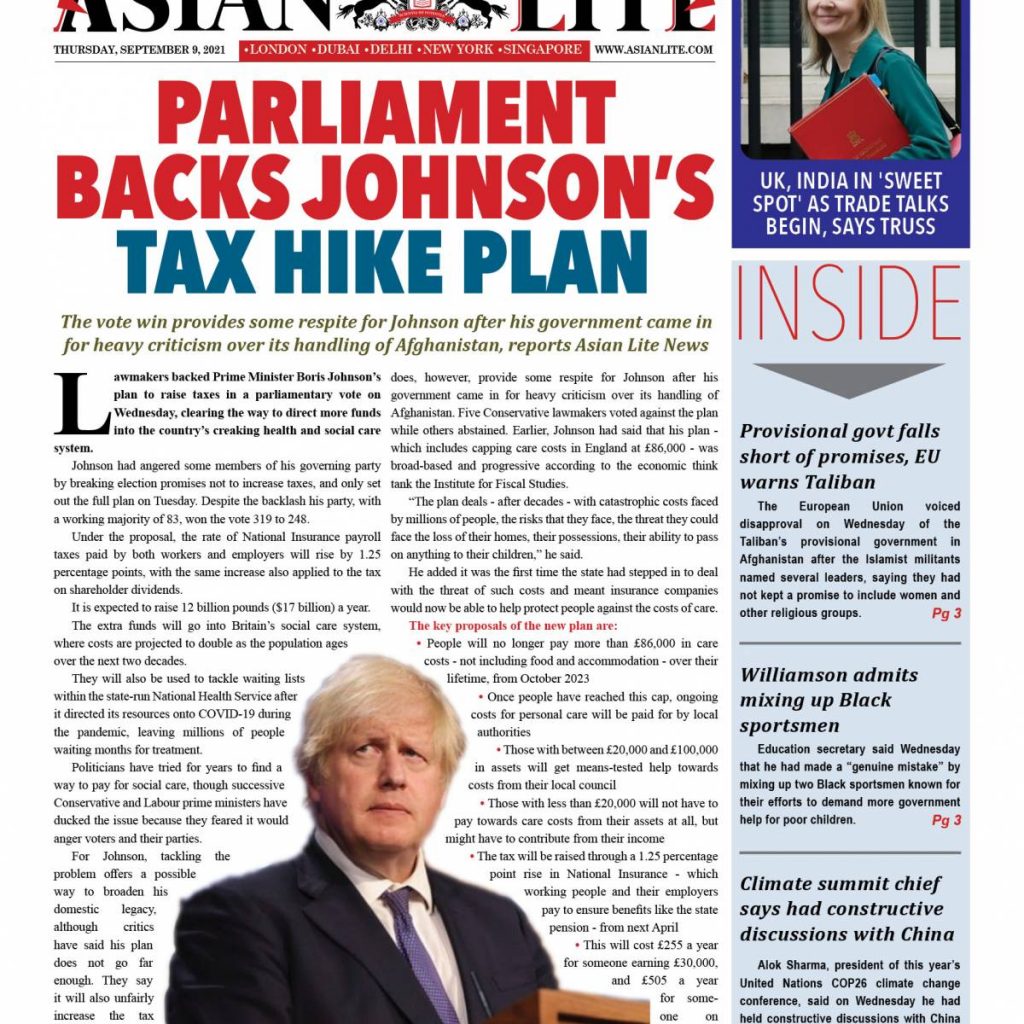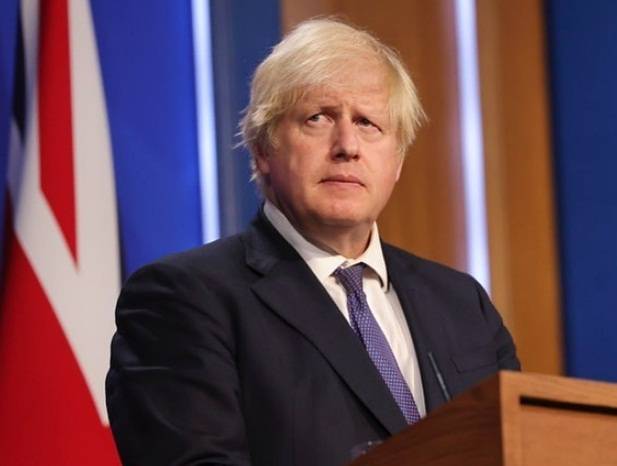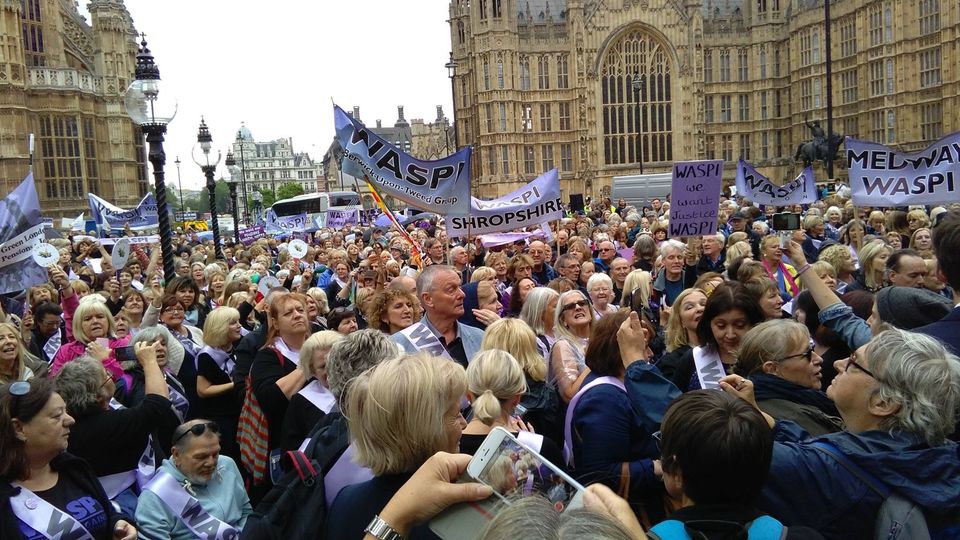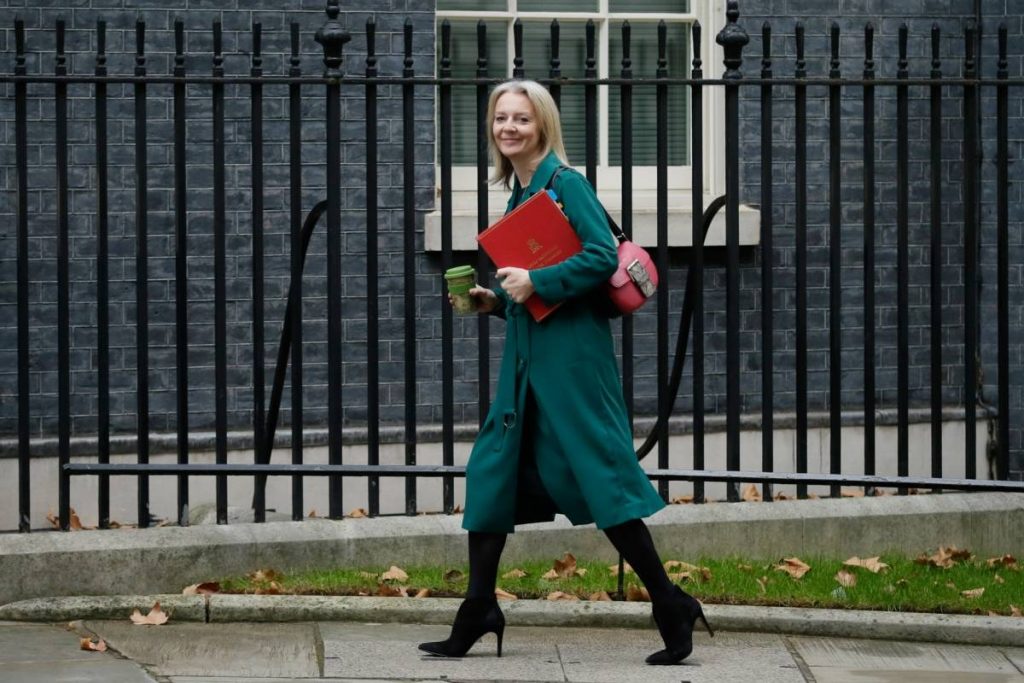The vote win provides some respite for Johnson after his government came in for heavy criticism over its handling of Afghanistan, reports Asian Lite News
Lawmakers backed Prime Minister Boris Johnson’s plan to raise taxes in a parliamentary vote on Wednesday, clearing the way to direct more funds into the country’s creaking health and social care system.
Johnson had angered some members of his governing party by breaking election promises not to increase taxes, and only set out the full plan on Tuesday. Despite the backlash his party, with a working majority of 83, won the vote 319 to 248.
Under the proposal, the rate of National Insurance payroll taxes paid by both workers and employers will rise by 1.25 percentage points, with the same increase also applied to the tax on shareholder dividends.

It is expected to raise 12 billion pounds ($17 billion) a year.
The extra funds will go into Britain’s social care system, where costs are projected to double as the population ages over the next two decades.
They will also be used to tackle waiting lists within the state-run National Health Service after it directed its resources onto COVID-19 during the pandemic, leaving millions of people waiting months for treatment.
Politicians have tried for years to find a way to pay for social care, though successive Conservative and Labour prime ministers have ducked the issue because they feared it would anger voters and their parties.
For Johnson, tackling the problem offers a possible way to broaden his domestic legacy, although critics have said his plan does not go far enough. They say it will also unfairly increase the tax burden on working-age British people.
The vote win does, however, provide some respite for Johnson after his government came in for heavy criticism over its handling of Afghanistan. Five Conservative lawmakers voted against the plan while others abstained.
Earlier, Johnson had said that his plan – which includes capping care costs in England at £86,000 – was broad-based and progressive according to the economic think tank the Institute for Fiscal Studies.
“The plan deals – after decades – with catastrophic costs faced by millions of people, the risks that they face, the threat they could face the loss of their homes, their possessions, their ability to pass on anything to their children,” he said.
He added it was the first time the state had stepped in to deal with the threat of such costs and meant insurance companies would now be able to help protect people against the costs of care.
The key proposals of the new plan are:
- People will no longer pay more than £86,000 in care costs – not including food and accommodation – over their lifetime, from October 2023
- Once people have reached this cap, ongoing costs for personal care will be paid for by local authorities
- Those with between £20,000 and £100,000 in assets will get means-tested help towards costs from their local council
- Those with less than £20,000 will not have to pay towards care costs from their assets at all, but might have to contribute from their income
- The tax will be raised through a 1.25 percentage point rise in National Insurance – which working people and their employers pay to ensure benefits like the state pension – from next April
- This will cost £255 a year for someone earning £30,000, and £505 a year for someone on £50,000, the government says.
ALSO READ-MPs to vote on Johnson’s manifesto-breaking tax rise












